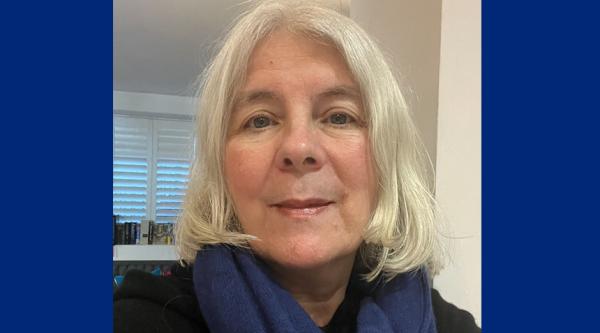Effect of dementia on young people
From Care and cure magazine - Autumn 2015, find out about research into the effect of dementia on young people.
Dr Sahdia Parveen is a post-doctoral research fellow at the School of Dementia Studies, University of Bradford and was recently awarded an Alzheimer's Society junior fellowship and a Dementia Research Leader award.
My grandmother was diagnosed with vascular dementia when I was 13 years old and we found out that my grandfather had leukaemia when I was 15. I helped my mother look after my grandparents, and the experience of trying to support each of them was very different.
We had never heard of the word dementia and had no idea what to expect. We knew what cancer was, as it was a bit more talked about in our community. My grandfather had lots of medicines he had to take, there were lots of hospital appointments and various healthcare professionals came to our house to help. My grandmother had nothing.
Whereas healthcare professionals helped us cope with the various stages of my grandfather's leukaemia, with my grandmother's dementia we learned by muddling through it. My mum, determined that we should be one step ahead of my grandmother's condition, would often send me off to the library to 'do research on dementia'. I guess this was the start of my dementia research career!
My research
While I was studying for my master's degree in clinical psychology, a lot of research was being done in the US by Professor Bob Knight and his team about how minority ethnic groups' experiences of dementia compared with other people's. They found that African American and Hispanic groups had strong cultural obligations to provide care for family members, and that this influenced how they used services, how they coped and their wellbeing.
What researchers couldn't agree on was whether a carer's sense of cultural obligation was a positive or a negative. Some found that cultural obligation was related to more positive experiences of being a carer, whereas others found it caused carers to feel more distressed. This made me think that the link researchers were missing was how willing these carers were to provide support. A lot of carers I had met were not always very willing but felt culturally obligated to support family members with dementia, and other carers who had no cultural obligations felt very willing.
In my research I found that south Asian carers in the UK felt more obligated to provide care than white British carers, however they did not differ in their levels of willingness to care. As you would expect, white British carers who were willing to provide care experienced less distress one year later. Interestingly this was not the case for south Asian carers - the more willing they were to provide care, the more likely they were to experience distress one year later. As the south Asian carers were much younger than the white British carers, it may be that they had less realistic expectations of their role as a carer and were not as prepared for the challenges that they faced.
Next steps
There has been some research with carers of people who have been diagnosed with cancer which suggests that carers who feel prepared for their role have a better quality of life than those who don't. However supporting a person with dementia is very different to other health conditions. A recent report by the Carers Trust, A road less rocky, suggests that family members supporting a person with dementia require support and information at key points, for example when the person's mental capacity declines. The report suggests that information provided in a timely manner at these moments can help carers to feel more prepared.
My Alzheimer's Society junior fellowship will focus on how a carer's sense of cultural obligation, willingness to care and preparedness change over time, and how they influence carer wellbeing. I will also explore how willing and prepared the next generation of carers are to support family members with dementia at home. The research will help us develop interventions for carers to help them feel more prepared and in control, and this will enable carers to better support the person with dementia.
Public engagement
Perhaps as a result of my personal experience, I have been very keen to raise awareness of dementia among young people. I felt inspired by the Dementia Friends initiative and developed a workshop specifically for young people called Dementia Detectives. We have delivered Dementia Detectives in schools with the support of colleagues at University of Bradford, and it has received overwhelmingly positive feedback from young people and teachers. The goals of the workshop are to bust the myths surrounding dementia and encouraging young people to develop ideas to create dementia-friendly communities. I have put together a team of researchers, trainers, young people aged 13-17 years, teachers and a social media expert to build on the initial success of Dementia Detectives.
In order to engage further with young people and raise awareness, Dementia Detectives has an active social media presence and we have built a large following on Twitter and Facebook. I am keen for Dementia Detectives to be incorporated as part of the school curriculum. Currently, a third of young people know someone living with dementia and this number will increase. We need to involve young people more in order to reduce stigma as they approach adulthood and build their confidence in supporting people with dementia in the community.
I feel very fortunate in the support I have had in building my research career and for my public engagement activities. I am particularly grateful for the academic support I have received from Professor Val Morrison and Professor Jan Oyebode and all the helpful advice from the carers I've been lucky enough to meet. I am delighted that Alzheimer's Society is supporting my research and I am very excited about starting the next phase. I hope my research and engagement activities will help current carers and future generations to feel one step ahead.







